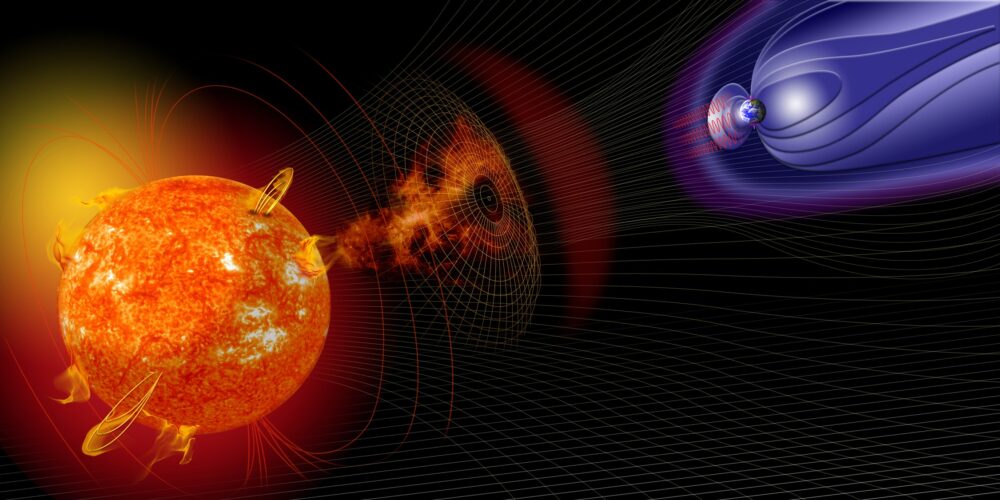FROM 14 TO 17 OCTOBER 2024, ROME BECOMES THE HUB OF THE INTERNATIONAL SCIENTIFIC COMMUNITY THANKS TO THE EVENT THAT TAKES PLACE AT THE NATIONAL INSTITUTE OF GEOPHYSICS AND VOLCANOLOGY (INGV). HEREIN, THE NEXT SCIENTIFIC PROGRAM COMMISSION (NSP) DELLO SCIENTIFIC COMMITTEE ON SOLAR-TERRESTRIAL PHYSICS (SCOSTEP) MEES TO DEFINE THE NEW FIVE-YEAR SCIENTIFIC PROGRAM WHICH WILL GUIDE RESEARCH IN THE SECTOR OF THE PHYSICS OF THE SUN-EARTH SYSTEM FROM 2025 TO 2029. THE MEETING, AN IMPORTANT OPPORTUNITY TO DISCUSS AND PLAN INTERDISCIPLINARY STUDIES, INVOLVES WORLD-RENOWN EXPERTS AND FACE FUTURE CHALLENGES AND OPPORTUNITIES IN A SCIENTIFIC FIELD OF GROWING RELEVANCE
The meetings for the new Five Year Programme: the NSP Commission
The commission NSP (New Scientific Program), active from last June toInstitute for Space-Earth Environmental Research di NagoyaJapan, represents an initiative of great importance in the field of scientific research. Made up of eleven internationally renowned scholars, it aims to outline a strategic program aimed at responding to the needs of the scientific community, addressing fundamental issues and defining feasible objectives for the next five years.
Under the direction of Dr. Monica Laurenza, first researcher of theNational Institute of Astrophysics (INAF) and chair of the commission, the NSP approach stands out for its inclusive and interdisciplinary nature. This orientation aims to ensure that future research in the field of solar and terrestrial physics is well coordinated and targeted, so as to foster a constructive dialogue between different scientific disciplines and connect the expertise of experts from various fields.
Towards a future of research
In particular, the commission will focus on key issues such as monitoring space conditions, the impact of solar activities on Earth’s climate, and interactions between Earth and the surrounding space environment, including phenomena such as solar winds and geomagnetic storms.
These studies will also include the role of satellitesfundamental for observing and collecting data on these phenomena, in order to better understand the influence of space on the Earth and on human technologies.
This attention fits into the broader context of the initiative SCOSTEP (Scientific Committee on Solar-Terrestrial Physics), a thematic body of the International Science Council (ISC) that promotes interdisciplinary programs to address the complex relationships between the Sun and Earth.
Its long-term goals include training young researchers, exchanging data and information between scientists, and supporting international projects that cross the boundaries of disciplines and physical regions.
Such initiatives are key to fostering cooperation and innovation in science. In this context, the studies conducted by the NSP commission are fundamental for the development of technologies capable of protecting modern infrastructures from extreme solar events, such as geomagnetic storms.
The meeting in Rome, therefore, is configured as a crucial moment of discussion and reflection.
Italy in pole position towards space
Italy, through the National Institute of Geophysics and Volcanology (INGV), plays a key role in SCOSTEP thanks to the active participation of leading figures such as Dr. Lucilla Alfonsi and Dr Monica Laurenza. Alfonsi, in particular, represents our country within the SCOSTEP Bureau.
Dr. Laurenza, with her role as a representative in the disciplines of Space Weather and Solar and Heliospheric Physics, brings additional expertise and perspectives to the work of the commission. Their presence not only consolidates the prestige of our peninsula within the global scientific community, but also highlights the commitment of the Bel Paese in promoting advanced scientific research, especially in sectors so fundamental to our understanding of the climate and its dynamics .
A key element that facilitates this international collaboration is the active support of the INGV president, Carlo Doglioni. Dr. Alfonsi underlined how her sensitivity and openness have allowed INGV to offer its headquarters in Rome as a stage for the work of the NSP commission.
The importance of collaboration
The Roman event is not just a meeting between experts, but also represents an opportunity to exchange ideas and best practices. Hosting world-renowned experts allows you to consolidate the collaboration network and create synergies between different institutions and scientific organizations.
During these days, innovative research and recent developments in disciplines relating to Sun-Earth relations will be presented. Thanks to these initiatives it will be possible to face emerging challenges in the field of space physics and formulate effective strategies for the future.

